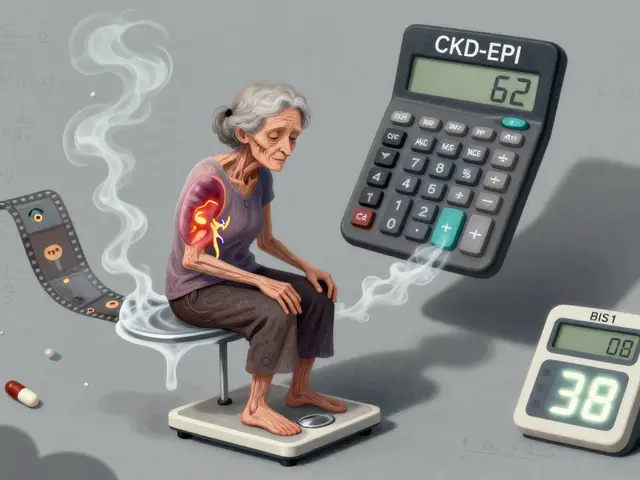Prescription allergy medication: what works and when
Allergies can knock you flat, but the right prescription allergy medication usually gets you back on your feet fast. If over-the-counter pills, sprays, or eye drops don't cut it, a doctor can prescribe stronger, longer-lasting options that target inflammation and immune response more effectively.
Common prescription options include oral antihistamines like prescription-strength cetirizine or levocetirizine, nasal corticosteroid sprays such as fluticasone and mometasone, leukotriene receptor antagonists like montelukast, and short courses of oral steroids for severe flares. For allergic conjunctivitis, prescription eye drops that combine antihistamine and mast cell stabilizer effects clear redness and itching faster than OTC drops.
What to expect from each drug
Prescription antihistamines reduce sneezing, itching, and runny nose without heavy sedation for most people. Nasal steroids take a few days to reach full effect but are the most effective long-term treatment for nasal symptoms. Montelukast works well for people with both allergies and asthma, though it can take weeks to notice benefits. Oral steroids are powerful but used sparingly because of side effects. For life‑threatening anaphylaxis, your doctor will prescribe epinephrine auto‑injectors — carry them at all times if you're at risk.
You may also get allergy immunotherapy referrals. Allergy shots or sublingual tablets aim to desensitize your immune system over months to years and can reduce dependence on daily meds. Immunotherapy is a long game but often pays off for people with seasonal or persistent severe allergies.
Safety tips & when to see a doctor
Tell your prescriber about other meds, health problems, and pregnancy or breastfeeding. Some allergy drugs interact with antidepressants, blood pressure meds, and certain antifungals. Watch for mood changes with montelukast and report any severe side effects right away. If symptoms include difficulty breathing, swallowing, fainting, or swelling of the face and throat, treat it as an emergency and use epinephrine if prescribed.
Avoid buying prescription allergy medications from sketchy online sites. Use licensed pharmacies and confirm prescriptions with your provider. Ask for clear dosing instructions and check if your insurance or local programs can lower costs. If one medication fails after a fair trial, ask about switching classes or adding treatments like nasal rinses or saline sprays to boost results.
Finally, pair medicines with practical steps: remove indoor allergy triggers, use HEPA filters, keep windows closed during high pollen days, and wash bedding weekly in hot water. Prescription allergy medication works best when combined with trigger control and a treatment plan you can stick with. If you want help choosing options or understanding risks, bring a list of your symptoms and current meds to your next appointment.
If you have multiple allergies or unclear triggers, ask about testing. Skin prick tests and blood tests can pinpoint the culprits so your doctor can choose targeted meds or immunotherapy. Keeping a symptom diary for a few weeks, noting foods, pets, locations, and timing, often reveals patterns. Small changes at home plus the right prescription can cut symptoms dramatically and reduce the need for emergency care.
How to Buy Nasonex Online Safely: Guide to Ordering Prescription Nasal Spray
Planning to order Nasonex online? Here’s what you need to know—step-by-step guide, tips for safe ordering, and key facts about this prescription allergy nasal spray.






